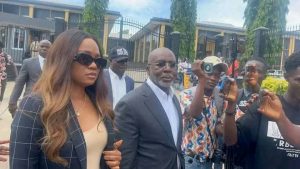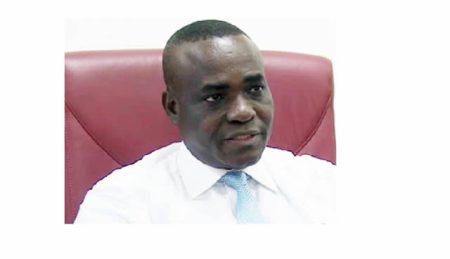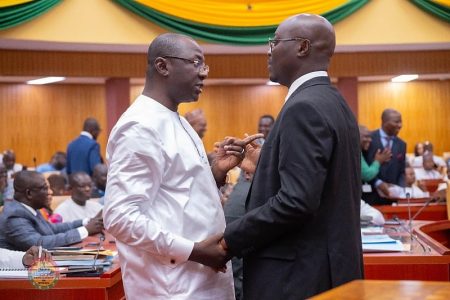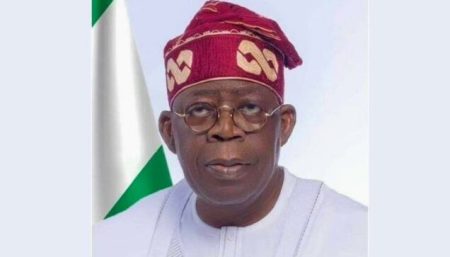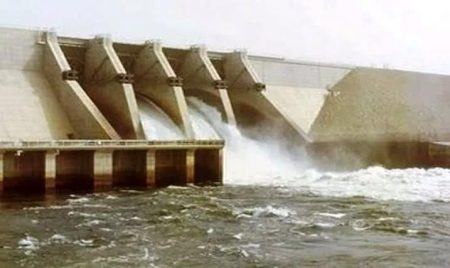President Tinubu’s Foreign Policy: A Paradigm Shift Amidst Domestic Challenges
President Bola Tinubu’s foreign policy, characterized by the 4Ds—Diaspora, Development, Demography, and Democracy—has ushered in a new era of assertiveness and economic pragmatism in Nigeria’s international relations. This shift is evident in Nigeria’s growing engagement with emerging economic blocs like BRICS, its renewed commitment to African peace and security through the AU, and its active participation in global forums like the G20. Tinubu’s administration has prioritized attracting foreign investment, securing significant pledges from countries like India, Brazil, the Netherlands, and Saudi Arabia, focusing on key sectors such as renewable energy, agriculture, and manufacturing. This proactive approach extends to strengthening ties with China through a “Comprehensive Strategic Partnership,” aiming to leverage Chinese investment and expertise to address Nigeria’s infrastructural needs. At the continental level, Nigeria is vying for a central role in Africa’s financial and energy landscape, pursuing the establishment of the African Central Bank and the African Energy Bank within its borders. Further, the country’s enhanced security cooperation, including AU approval for Nigerian naval forces to participate in peacekeeping missions, underscores its commitment to regional stability. Finally, Nigeria’s environmental diplomacy has gained momentum, with co-leadership of the Green Guarantee Company and active participation in climate change initiatives like COP28, reflecting its commitment to sustainable development.
This ambitious agenda, however, faces substantial headwinds. Domestic insecurity, economic strain, and diplomatic gaps pose significant challenges to the realization of these goals. Despite the influx of investment pledges, many agreements remain in nascent stages, with undefined timelines and financing arrangements. A shortage of appointed ambassadors in key diplomatic posts hinders effective representation, while funding shortfalls for embassies impact morale and operational capacity. Nigeria’s persistent security challenges, ranging from insurgency in the Northeast to banditry in the Northwest, strain its military resources and raise questions about its capacity to fulfill expanded regional security commitments. Furthermore, the credibility of Nigeria’s environmental leadership is undermined by its own domestic environmental record, particularly in the oil-producing Niger Delta, where pollution remains a persistent issue. The gap between ambitious goals and practical implementation underscores the need for a more robust and pragmatic approach to foreign policy execution.
Expert perspectives offer valuable insights into the complexities of Nigeria’s foreign policy landscape. Retired Ambassador Rasheed Akinkuolie emphasizes the crucial link between domestic stability and foreign policy effectiveness. He highlights the limitations imposed by economic instability and insecurity, arguing that these internal challenges hinder Nigeria’s ability to fully leverage its diplomatic potential. Akinkuolie also points to practical constraints, such as funding shortages that have hampered the appointment of ambassadors, advocating for cost-effective solutions like confirming chargé d’affaires as ambassadors or implementing strategic cross-postings. He commends Nigeria’s stance against military coups in the region, acknowledging the pragmatic decision to restore military cooperation with Niger to combat terrorism. Furthermore, he praises President Tinubu’s investment drives to the Middle East and encourages private sector engagement to capitalize on these opportunities. The ambassador also lauds the Nigerians in Diaspora Commission for its efforts in addressing consular issues and protecting the rights of Nigerians abroad. Crucially, Akinkuolie stresses the need for domestic reforms, advocating for the establishment of state police forces to address internal security and greater government involvement in the economy, drawing inspiration from models like those of China and Vietnam.
Retired Ambassador Ogbole Amedu-Ode echoes the sentiment that domestic realities significantly impact foreign policy outcomes. While acknowledging the progress made in attracting foreign investment and raising Nigeria’s global profile, he points to the withdrawal of Burkina Faso, Mali, and Niger from ECOWAS as a major setback during Tinubu’s tenure as ECOWAS Chair. This development underscores the complexities of regional leadership and the need for more robust diplomatic engagement to restore stability and reaffirm Nigeria’s influence within West Africa. Amedu-Ode’s assessment highlights the interconnectedness of domestic and regional dynamics, emphasizing the need for a cohesive and strategic approach to foreign policy.
The Nigerian diaspora, a vital component of the 4Ds, plays a crucial role in bolstering the country’s economic development and international engagement. With annual remittances exceeding $20 billion, the diaspora represents a significant source of capital and expertise. The government, through initiatives like the Nigerians in Diaspora Commission, is actively working to engage this diaspora community, expanding consular support and creating investment vehicles to channel diaspora capital into key sectors like agriculture, real estate, and fintech. This focus on diaspora engagement reflects a recognition of their importance not just as financial contributors, but as active participants in shaping Nigeria’s future.
Looking ahead, the success of President Tinubu’s foreign policy will hinge on addressing the critical internal challenges that constrain its effectiveness. Bridging the gap between ambitious pronouncements and concrete implementation requires a more pragmatic and strategic approach. Strengthening diplomatic representation, securing adequate funding for embassies, and addressing persistent security concerns are vital steps towards achieving the goals outlined in the 4Ds framework. Furthermore, aligning domestic policies with international commitments, particularly in areas like environmental protection, is crucial for building credibility and ensuring the long-term sustainability of Nigeria’s foreign policy endeavors. Only by effectively navigating these domestic and regional complexities can Nigeria realize its potential as a major player on the global stage.



